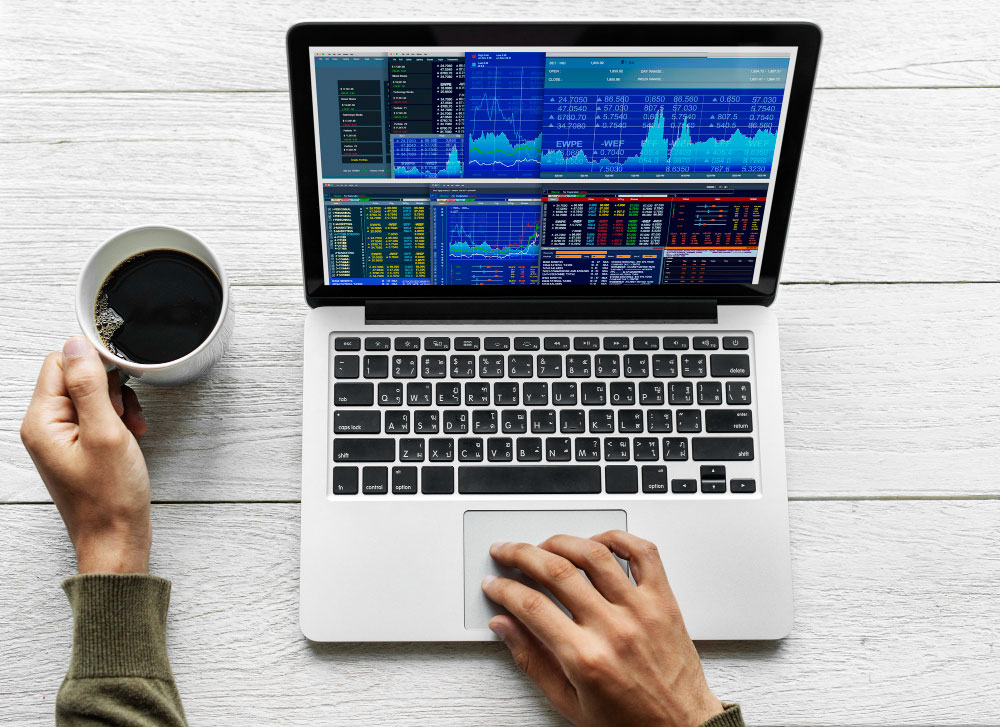Online Trading
Trading is an online business in which we can earn more money in less time by investing our funds in different ways.
Types of online trading:
1.intraday trading
2.scalping trading
3.swing trading
4.position trading
5.momentum trading
Profit from trading:
We all can earn money at home through online trading. Online trading is one of the best ways to make investments through which we can earn a lot of money in a day.
strategy of trading:
In online trading we have to pay special attention that when the share market value is low or bad, we always have to pay attention that when the market is rising and the value of our fund is increasing, we all have to immediately pay attention to our fund. Who should be sold and as the value of the fund is falling, this stock should be bought immediately. Today, people are earning lakhs of rupees daily.
Tick Trading:
Tick trading is the smallest amount of an increase or decrease in an asset. It is a fixed amount.
Online trading refers to the buying and selling of financial assets, such as stocks, bonds, currencies, commodities, or derivatives, using electronic trading platforms and internet-based brokerage services. Instead of traditional methods like calling a broker or visiting a physical trading floor, online trading enables investors and traders to execute trades from anywhere with an internet connection.
Here’s how online trading typically works:
1.Selection of Brokerage Platform: Traders and investors choose an online brokerage platform or trading platform that meets their needs and preferences. Factors to consider include commission fees, trading tools, research resources, customer support, and platform usability.
2.Account Setup: Users open a trading account with the chosen brokerage platform by completing an online application process. This may involve providing personal information, verifying identity, and funding the account with capital to start trading.
3.Market Research and Analysis: Before placing trades, traders conduct market research and analysis to identify potential trading opportunities. This may involve fundamental analysis, which assesses the financial health and prospects of companies or assets, and technical analysis, which analyzes price charts and market trends.
4.Placing Trades: Using the brokerage platform’s trading interface, users execute trades by entering buy or sell orders for specific financial assets. They specify the quantity, price, and order type (e.g., market order, limit order, stop order) for each trade. The brokerage platform then routes the orders to the relevant exchange or market for execution.
5.Order Execution: Once orders are submitted, they are processed and executed by the exchange or market where the financial assets are traded. The execution time may vary depending on market conditions, liquidity, and order type. Traders receive confirmation of their trades and updates on their account balances in real-time.
6.Monitoring and Management: Traders monitor their positions closely, track market developments, and manage their trades in real-time using the brokerage platform’s trading tools and features. They may adjust their trading strategies, set stop-loss orders to limit losses, or take profits based on market conditions and their trading plan.
7.Account Management: Traders manage their trading accounts, track their portfolio performance, and review their transaction history and statements through the brokerage platform. They may also deposit or withdraw funds, transfer assets between accounts, and access account-related information and reports.
8.Continuous Learning and Improvement: Successful traders engage in continuous learning and improvement by staying informed about market trends, refining their trading strategies, and analyzing their trading performance. They may use educational resources, attend webinars or seminars, and participate in online trading communities to enhance their skills and knowledge.
Overall, online trading offers convenience, accessibility, and flexibility, allowing traders and investors to participate in financial markets and execute trades efficiently and securely from anywhere at any time. However, it’s important to understand the risks involved in trading and to conduct thorough research and analysis before making investment decisions.


 admin
admin